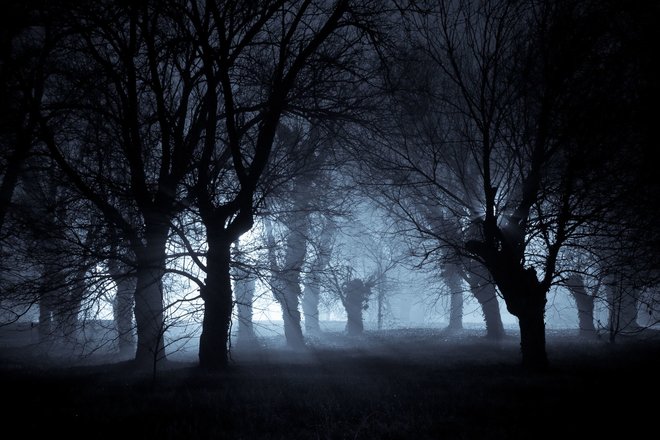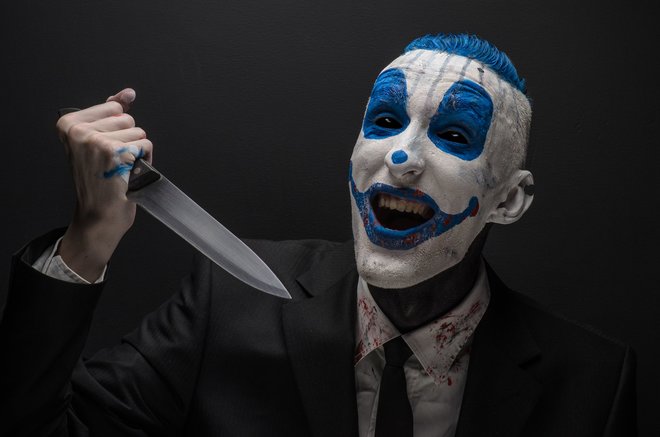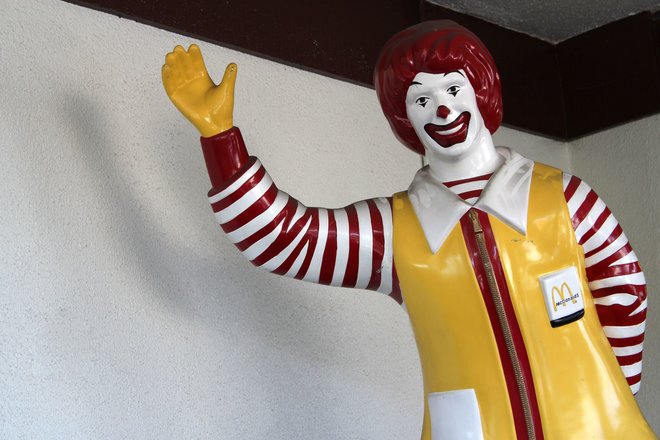The wonderful thing about the internet is that it provides us with a steady stream of information, knowledge and entertainment. Unfortunately, not every bit of it is reasonable and there are many loony ideas out there. Normally, no one gets hurt, beliefs in healing earth, lizard people or Bigfoot won't motivate anyone to roam the streets at night with a huge hammer and an unhealthy dose of blood lust. Yet, this dumb idea is different and tells us a lot about the internet, its effects - and Ronald McDonald.

Not everybody likes clowns. I can vividly remember the times when I was child and we were at a circus. I mustered the masked and strangely happy men with some distrust and made my dad promise that he'd never hire one of them for my birthday. Shakespeare must have held a similar view as he had clowns appear as eerie gravediggers in Hamlet. Finally, when Steven King unleashed killer clown Pennywise onto mankind and John Wayne Gacy, a real serial killer with a clown fetish, made the news, things went downhill for the colorful jesters. Coulrophobia, an irrational fear of clowns, quickly found its way into psychological textbooks but it never became a mass phenomenon - the internet hadn't been discovered yet!
It was the internet who eventually turned this idea into a hype. 2014 was the first time I became aware of killer clowns as a Youtube trend. A posse of pranksters took to their cameras to scare unsuspecting passersby with scenes reminiscent of horror movies while being dressed up as clowns. That was a novelty, had considerable shock potential and was watched by over 75 million people. It was a professionally staged prank that quickly attracted copycats (inevitably) including a few mentally ill characters. The internet is ideal to popularize new phenomena and to promote stories and competition.
 Not the sight you wish for during your evening strolls
Not the sight you wish for during your evening strolls
First, there were only a few sightings that were shared by millions on image portals like 9gag or through social networks. It didn't take long for the first fan art to appear along with urban myths that tied comprehensive backstories and vitae to killer clown characters. And - naturally - it promoted competition. Who was the creepiest, funniest or most bizarre? This became an international fad that spread from the US to many countries including Chile, Australia, Ireland. Fake or not, numerous photos and videos of scary nightly encounters popped up and, secretly, I was waiting for the first real casualty.
The birth of the unavoidable canon of conspiracy theories meant further high accolades for the phenomenon. From secret societies of clowns to high performance marketing for upcoming movies, conspiracists let their imagination run wild. My personal favorite: The clowns are sent by the government to distract from important issues (US election campaign, free trade agreement, etc.). I can easily visualize the scene in my mind: "Mr. Carlson, have you finished case file 43/12? Excellent, please put on your clown costume and distract the population from our sinister plot." "Oh come on, not field service again!"
Alas, these pranks have now turned into genuine crimes since the last group of people to catch on to internet hypes are usually the crazies. Masked people that chase schoolchildren around the blocks while wielding knives do not qualify as pranks. One Swedish clown took things one step further and actually stabbed someone. Others can only be fended off with the help of firearms or get filmed by security cameras during their attempts at breaking into peoples' homes. Obviously, the notion that it's easy to terrorize your neighbors or commit offenses dressed up as clowns hasn't escaped the crazies.
 Hopefully without a knife behind his back: Ronald McDonald
Hopefully without a knife behind his back: Ronald McDonald
Reactions aren't any less bizarre. People display outright hostility towards professional clowns and throw garbage at them while police officers warn against clown costumes during Halloween to prevent panic and violence. Armed neighborhood watch groups are patrol the streets at night and special Twitter accounts report the latest sightings along with a call for happy clown hunting. Even legendary mascot Ronald McDonald fell victim to this negative trend and has been barred from all McDonald's ads for now. Whether this was due to fears of being shot by anxious parents is unclear.
Initially, I selected to ignore this trend but then it became a perfect example of how boredom, cockiness and abject motives fueled by the need to torment others can turn into a nasty trend on the internet. To quote one of my clever friends: "Internet, you are a great thing but sometimes you can be so annoying."




The clown who scares me the most is the one currently running as Republican candidate for the Presidency of the USA.
It’s hard to miss the definitive similarities. :)
Something in the water perhaps causes certain mindless individuals to change into cretins, or is it lack of sensible discipline or bad education of many children which causes stupid actions.
Halloween is another brainless, mindless activity which has nothing whatsoever to do with the long-past real annual ritual of All Hallows Eve'.
The current event is in fact dis-respectful of those who have died, but when alive gave us life.
The pagan ritual was when villagers met on an evening in the village, and lit their clay-pot, primitive lanterns. (they would never waste food, even pumpkins were too big and cumbersome to carry up high on the end of a pole)
In a group they would go to the cemetery and bless the souls of the dead to respect and thank their souls and gave thanks for having been given life.
................
Clowns, Halloween, Christmas, Easter, Valentine's Day, etc; fail society by being promoted with lies and other ficticious dates from the past to benefit those responsible for their selfish production of MONEY.
I have two friends who donate their time to dress as clowns to help raise funds for various Charities and Church groups around our town and district.
It would be an absolute travesty if they had to give up this admirable activity because of the actions of a few unsavory individuals whose only goal in life is to cause misery and instill fear in others.
That’s really a problem but there are also clowns that do a lot of good in hospitals.
THESE LOOK DEMONIC ANYWAY AND WORSE SCARY TO CHILDREN
There is an upside to this type of trash on the Internet Sven. Hopefully people will recognize the difference between very bad media and the best media stories. When this trite makes a so called news headline it is junk journalism. People would be wiser to check sources and ignore the crazies.
The more attention given to it the more sensational it becomes until as you said someone gets strapped. This is where I look for and never find moral judgement form YouTube aka Google. Violence is taught and is not inherent.
They let the crazies out of the asylum and gave them a life as politicians.
Sven, human nature is very complex and strange, and consequently, our humor is the same. For example, take a look at the way we react to some comedy movies or cartoons, we laugh at violent scenes (i.e. classical fight between mice, cats and dogs), we laugh when stupid words are spoken, or when some eerie practical jokes are put into practice, even when injuries can happen to the people involved. Of course, this side of human nature will always be the target of the professionals in the human behavior, who uses internet for their purposes, according to their superior leaders
(international powers, different governments, groups of interests etc.).
When I was a kid, clowns were on weekly tv shows and in the circus . They were sad looking characters, but were funny and not feared. The world has changed.
I don't get this. Why would frightening, humiliation and ridiculing people be funny?
This seems to be more about taking pleasure in tormenting others. Usually, you’d eventually reveal a prank and not run off into the night.
Yet another reason to dislike so-called 'practical jokes'. I have never liked or even really approved of them but with the addition of the internet to the obliviats/idiots of the world to these so-called 'pranks' I see nothing harmless about any of them. People can and therefore will take things too far. Please do not encourage them in any way, shape or form.
No more ICP album releases??? :-O
Back in the late 80s I thought that the movie "Killer Klowns from Outer Space" (see < http://www.imdb.com/title/tt0095444/ >) was just a another stupid wannabe horror film.
Could it have been the seed for all the awful later developments you are describing (truthfully, I haven't been aware of them until I read your blog ...)?
Guess our "modern" society suffers of too much boredom if it has the time & energy to waste on such aberrations (and to turn them into actually life-threatening actions).
Let's hope we may deal with more optimistic items in the years to come, such that would render our stay on this planet (not that we have another, at least for now ...) more peaceful, healthy, productive & joyful for everyone's benefit :)
On a personal note: Sven - keep the good stuff up & coming! I really enjoy it and am sure most of your readers do too :)
Thanks! I’m also having a lot of fun with this blog. As long as my bosses are willing, I’ll happly carry on with it. :)
Ah yes Tim Curry as Pennywise, and you remembered that... fair play. I do find it worrying how easily people jump on the 'band wagon' with these totally stupid ideas. As you say the crazies. Thankfully this follishness has not reached my area yet, or at least I haven't seen it. What I will say is I now have a large aluminium torch that I carry at night. It will hurt if I have to use it, and I will use it if needed. I shouldn't have to be thinking like that, but looking after me and mine is what matters. Frankly may all these fools rot in hell, as the jails are to full.